Rabbits are cute, fluffy creatures that we often see hopping around in fields or kept as pets in our homes. But in the wild, life isn’t as easy for them. These small herbivores are constantly on the lookout for predators. So, exactly what eats rabbits? Let’s explore the predators that consider rabbits a tasty snack and how rabbits manage to survive in such a dangerous world.
Why Are Rabbits Often Prey?
Rabbits are a natural part of the food chain, serving as a significant source of nutrition for many predators. Their small size, high reproductive rate, and abundance make them ideal prey for both birds and mammals. Because they live in various habitats—from forests to grasslands to suburban backyards—rabbits have a wide range of predators. This also means that rabbits have had to evolve quick reflexes and strong survival instincts to avoid becoming someone’s dinner.
Common Predators of Rabbits
Rabbits, or bunnies as they’re often called, face many predators in the wild. So, what eats bunnies in the wild? The answer includes a wide variety of animals, ranging from birds of prey to mammals and even reptiles. Because rabbits are small and vulnerable, they are an essential part of many predators’ diets.
Birds of Prey
Many birds of prey, known for their excellent hunting skills, target rabbits as part of their diet.
Eagles

Eagles, particularly large species like the golden eagle, have been known to hunt rabbits. These powerful birds have sharp talons and keen eyesight, allowing them to swoop down and snatch up a rabbit in seconds.
Hawks
Hawks are common predators of rabbits, especially in open areas like fields or grasslands. They rely on their sharp vision to spot rabbits from above and their speed to dive in for the kill.
Owls
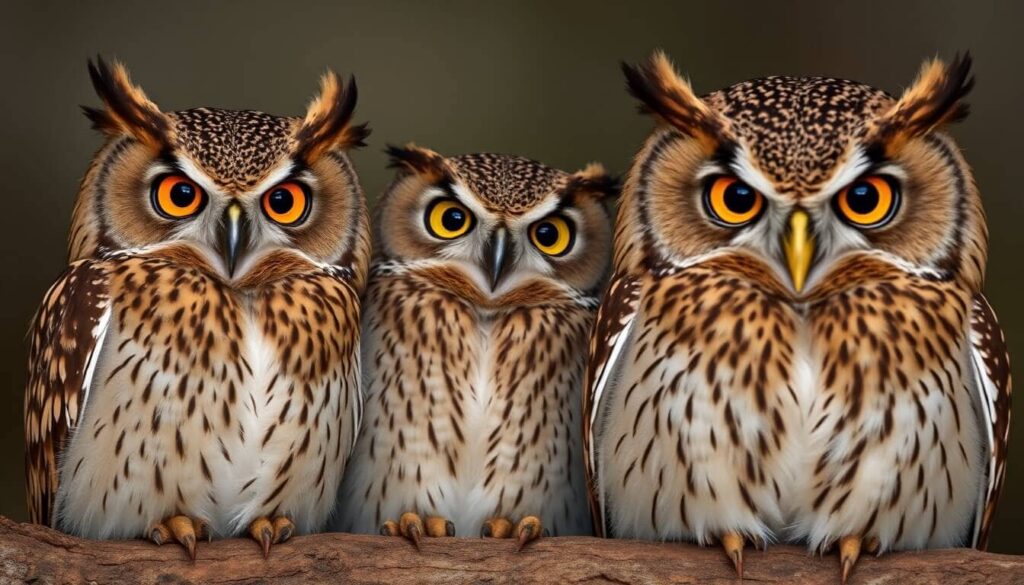
Owls, especially larger species like the great horned owl, are formidable nocturnal predators of rabbits. With their silent flight and excellent night vision, owls can catch rabbits unaware in the darkness.
Mammalian Predators
Rabbits are also targeted by several mammals, both wild and domestic.
Foxes
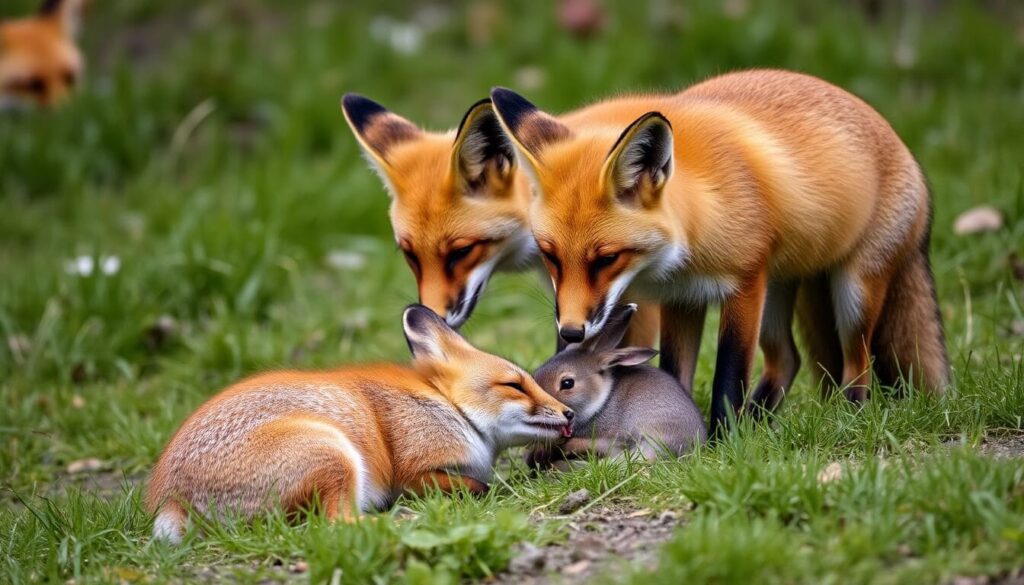
Wolves
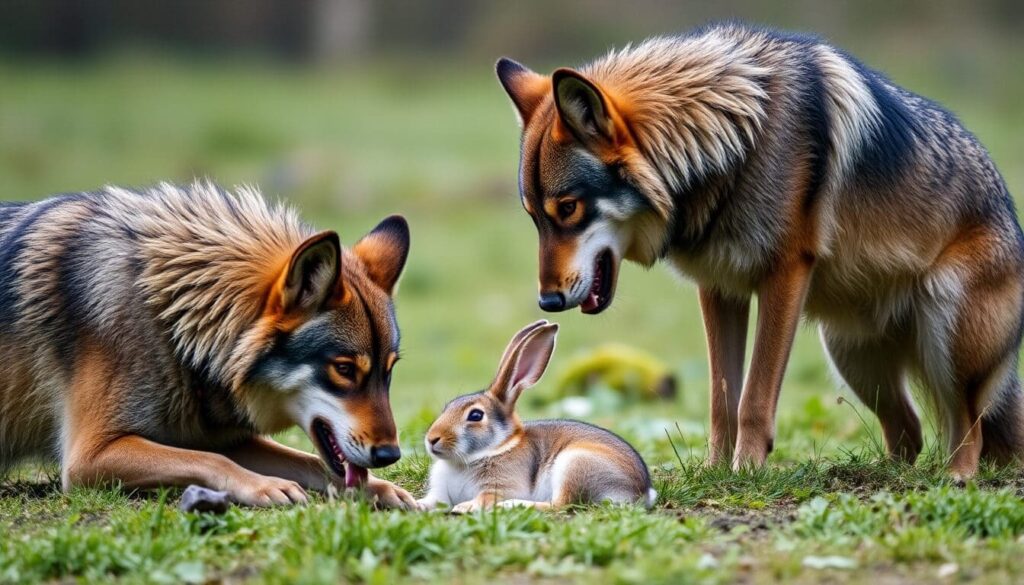
Wolves, particularly in wild, forested areas, have been known to hunt rabbits, although they usually go for larger prey. Rabbits are more of a snack when bigger food sources are scarce.
Coyotes
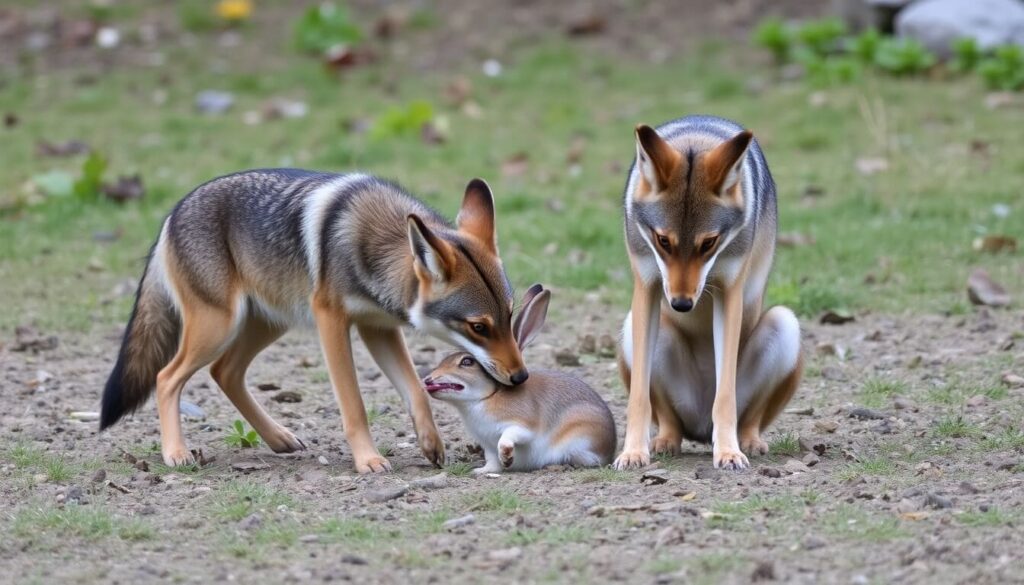
Coyotes are common predators of rabbits, especially in North America. They are opportunistic feeders, and rabbits make up a significant portion of their diet when available.
Domestic Dogs

Even our beloved pets can pose a danger to rabbits. Some dog breeds have a natural instinct to chase small animals, and if a pet rabbit is not well-protected, it could fall victim to a dog’s chase.
Ferrets
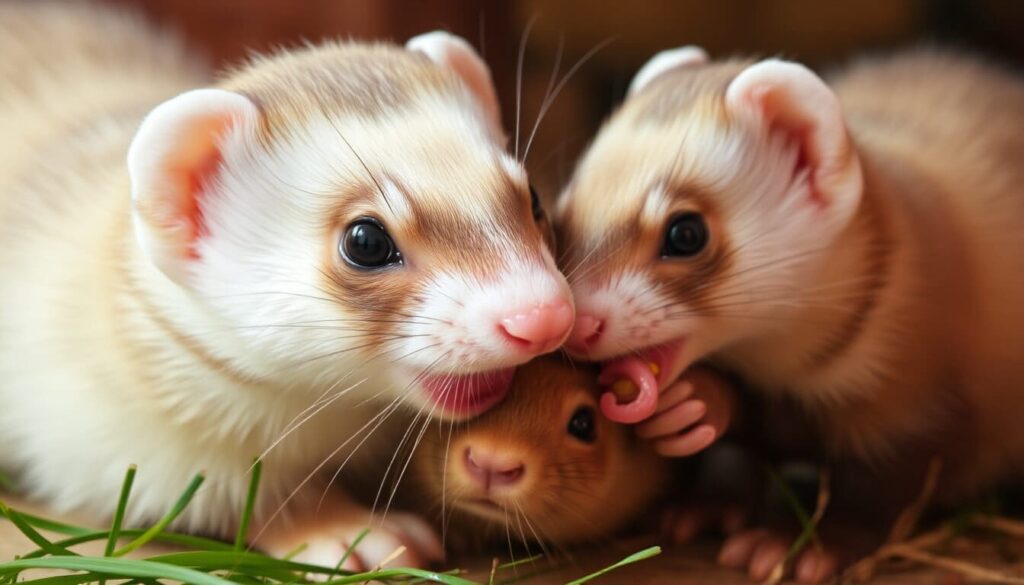
Ferrets are nocturnal hunters with a strong carnivorous diet. They have excellent night vision, making them effective predators for small mammals like rabbits.
Weasels
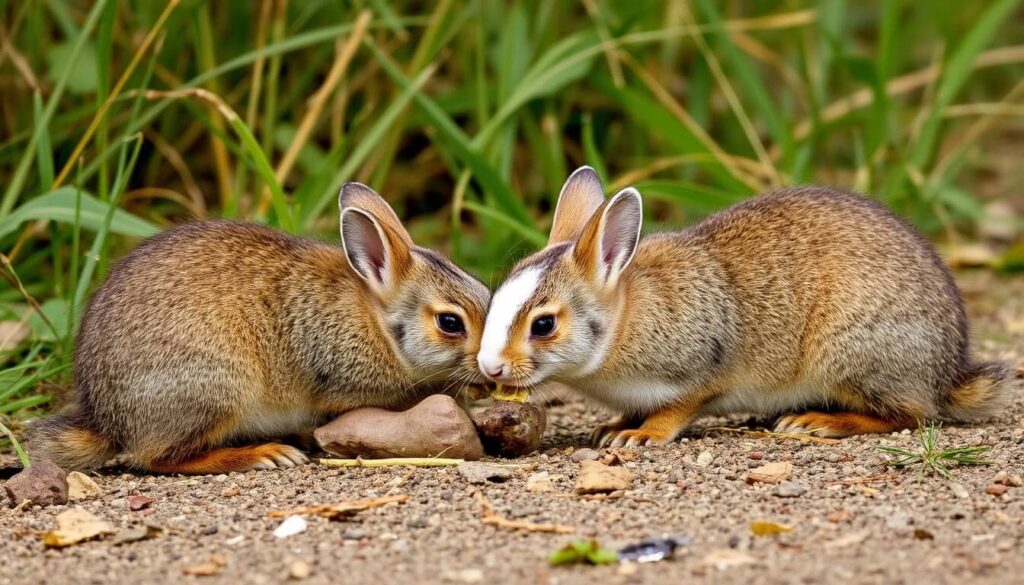
Despite their small size, weasels are aggressive hunters with a big appetite. They can take down prey that is larger than themselves, including rabbits.
Badgers
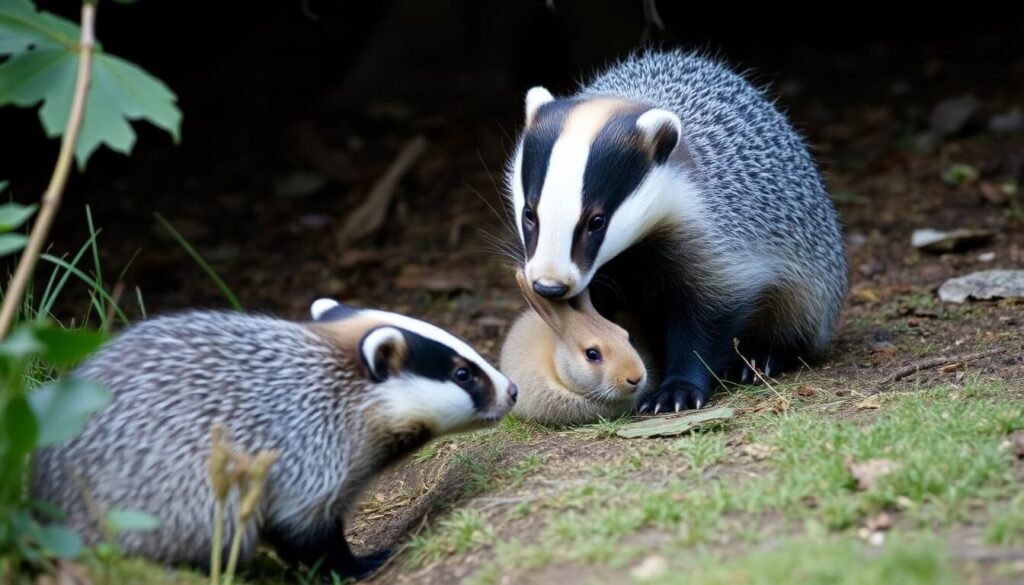
Badgers are known for their ability to dig and hunt small mammals like rabbits. While their primary diet consists of insects and worms, badgers will hunt rabbits when the opportunity arises, especially young or injured ones.
Stoats
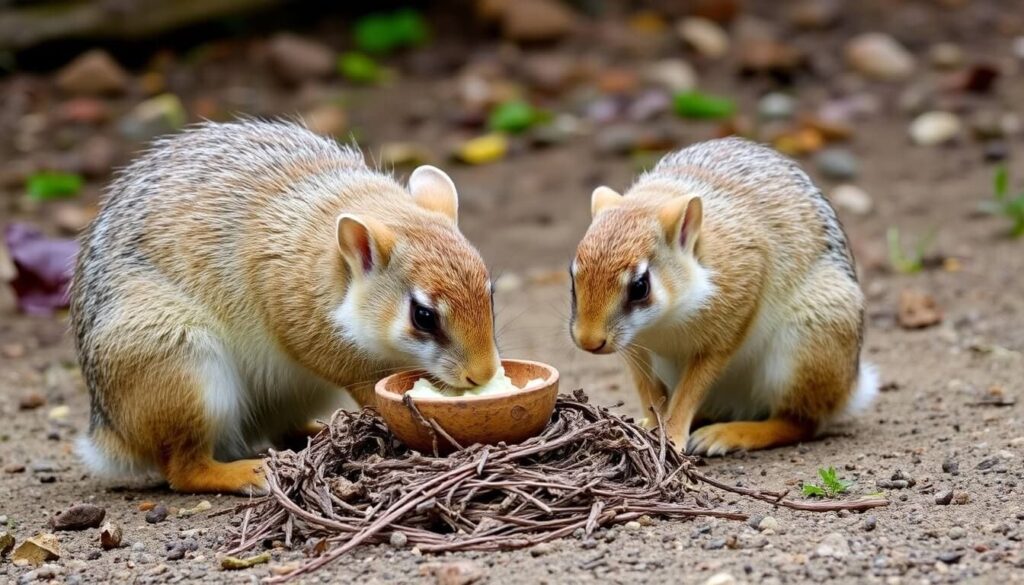
Stoats are skilled pack hunters who often use diversion tactics to catch rabbits. One stoat may distract the rabbit while others sneak up on it from behind.
Dingoes
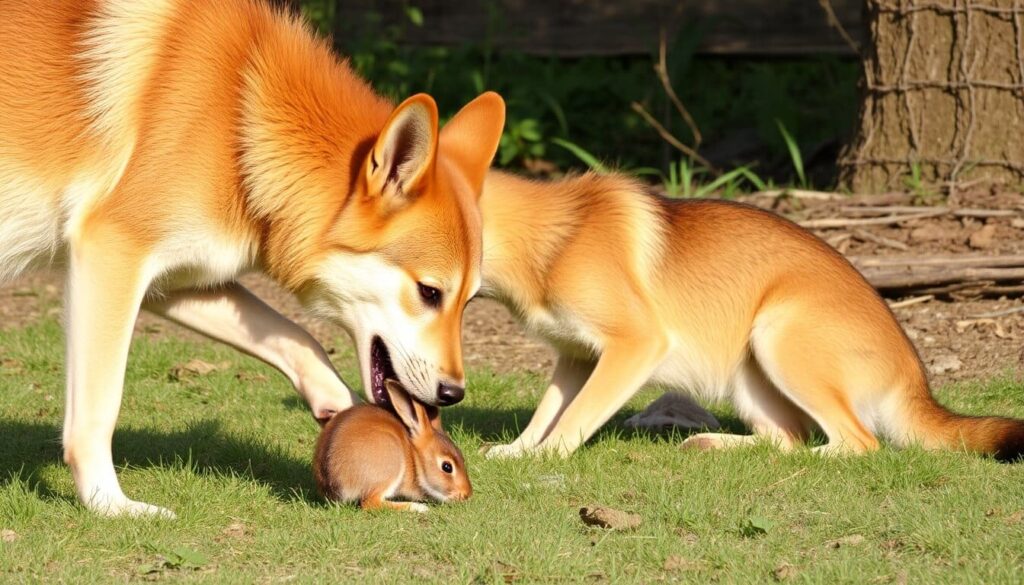
Dingoes, primarily found in Australia, are wild dogs that thrive in habitats such as grasslands and rocky terrains, areas where rabbits also live.
Wolverines
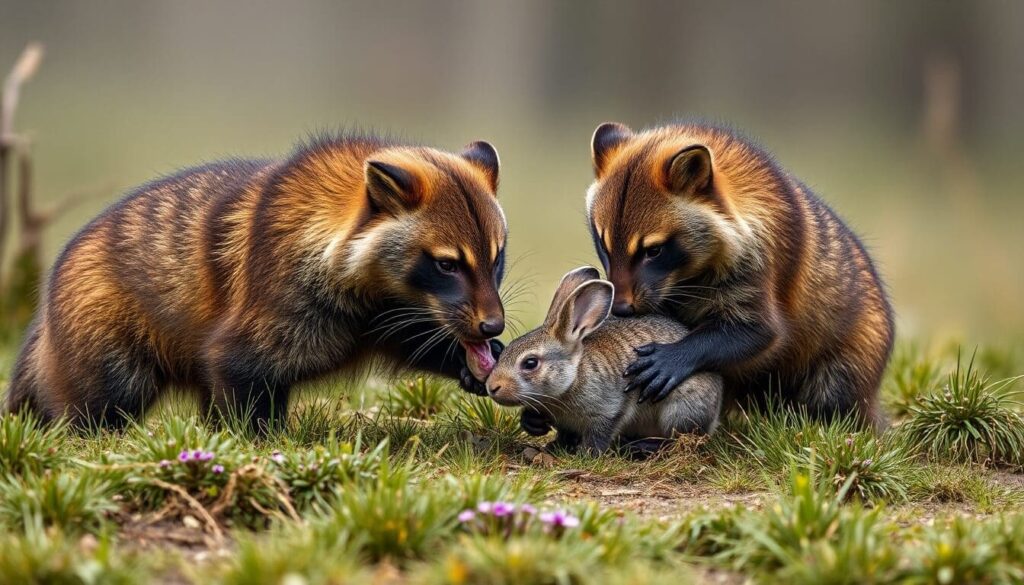
Wolverines, small but fierce carnivorous mammals, are known for their diverse diet, which includes rabbits. These animals are expert scavengers and hunters, often digging into the burrows of hibernating animals during the winter.
Raccoons
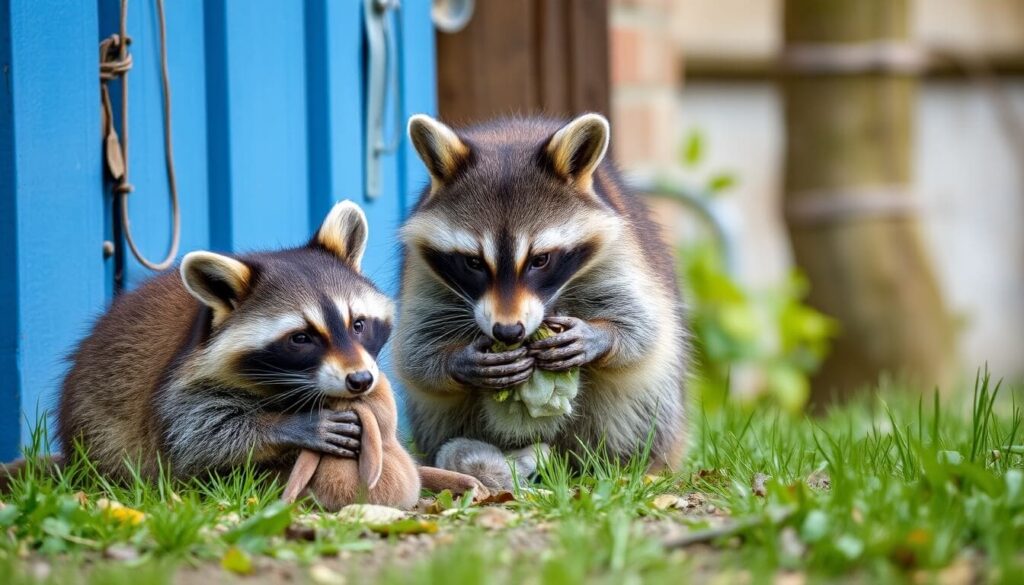
Raccoons are omnivores and opportunistic hunters. While they mainly prefer slower prey due to their limited speed, raccoons can catch and eat rabbits if they get the chance.
Bears
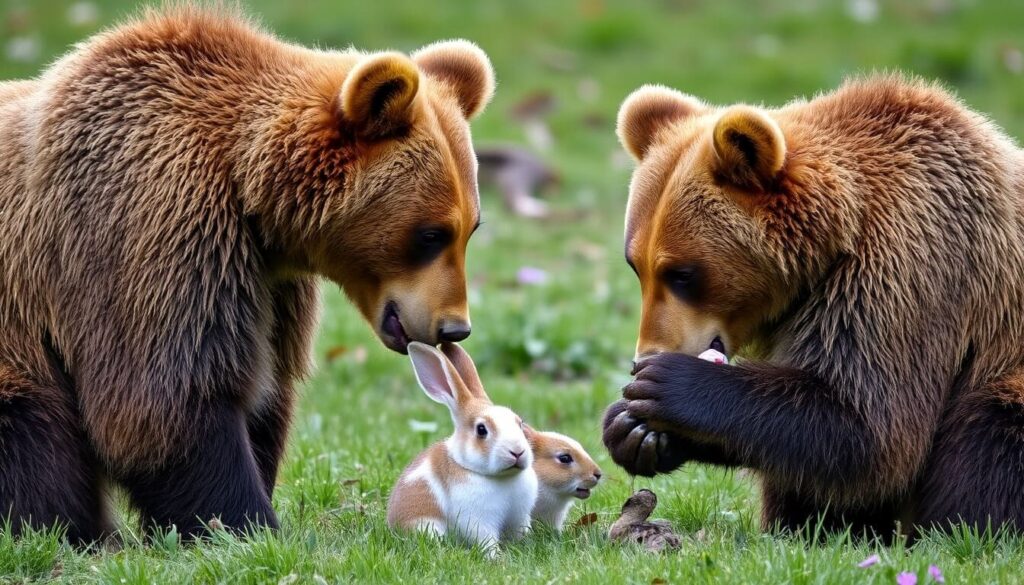
Bears have a varied diet that includes fruits, insects, and meat. When bears require protein, they won’t hesitate to hunt down small mammals like rabbits.
Big Cats
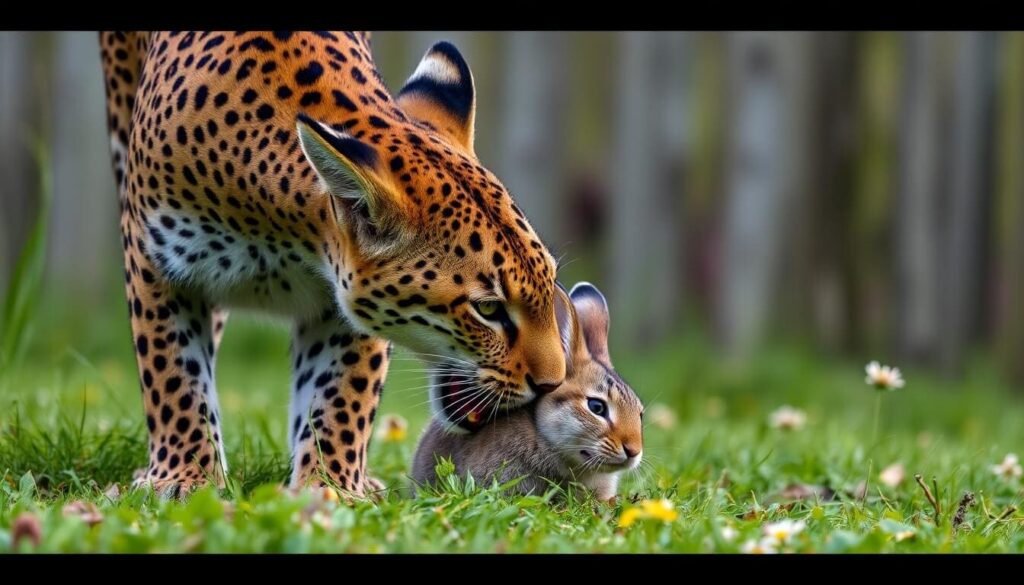
Big cats, such as leopards, bobcats, and cougars, are fierce predators that occasionally target rabbits. While they typically prefer larger animals, big cats will hunt and eat rabbits when they’re readily available or when other prey is scarce.
Cats
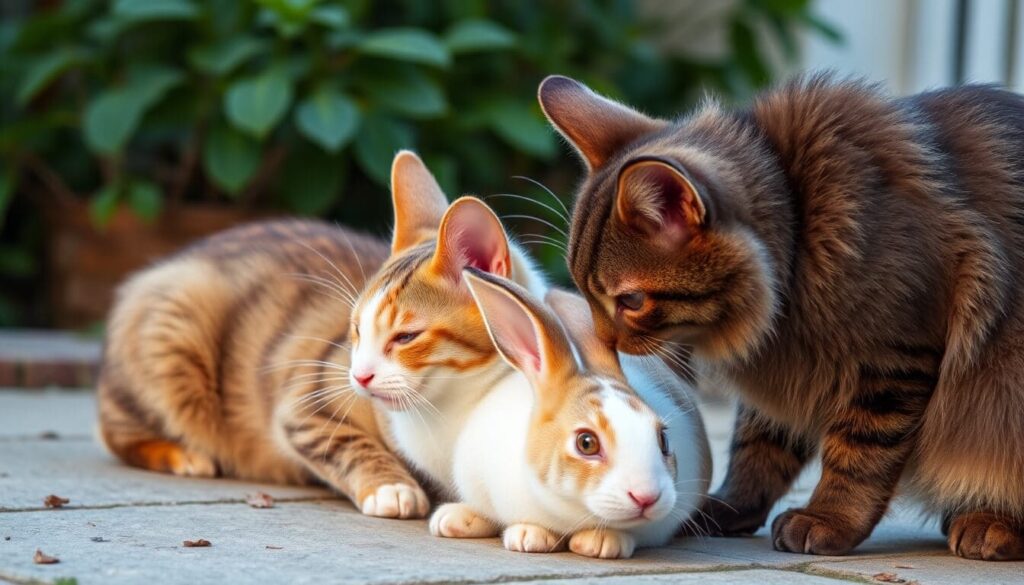
Domesticated cats are natural hunters with predatory instincts. Even though they are usually fed by humans, many cats will still hunt smaller animals, including rabbits, out of instinct.
Reptilian Predators
Snakes
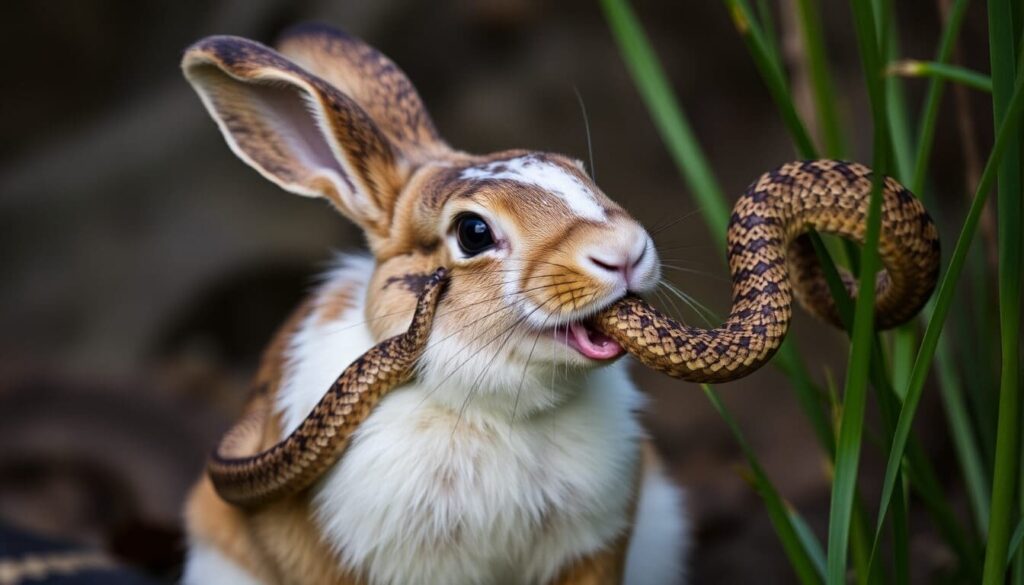
In some regions, snakes are a common threat to rabbits, particularly the young or smaller-sized ones. Large snakes like pythons and boas have been known to catch and consume rabbits by constriction, while other snakes may enter rabbit burrows to hunt.
Lizards
Large lizards, like Komodo dragons and iguanas, occasionally prey on rabbits. Depending on the size of both the lizard and the rabbit, these reptiles can overpower and eat rabbits.
Human Impact on Rabbits
Humans, too, have historically preyed on rabbits, hunting them for their meat and fur. While this is less common in urbanized areas today, rabbits are still hunted in some parts of the world. In contrast, domesticated rabbits, which are kept as pets, face different challenges and need to be protected from various threats, including predators.
How Do Predators Hunt Rabbits?
Hunting Techniques of Birds of Prey
Birds like hawks and eagles rely on their extraordinary vision to spot rabbits from high above. Once they zero in on their target, they dive at incredible speeds, using their sharp talons to capture the rabbit in one swift motion.
Hunting Techniques of Mammals
Mammals like foxes and coyotes use stealth and patience to hunt rabbits. They stalk their prey, waiting for the right moment to attack. These predators rely on their speed and agility to catch rabbits before they can escape.
How Snakes Catch Rabbits
Snakes, especially constrictors, use their body to trap and suffocate rabbits. They often wait in hidden spots, such as rabbit burrows, to catch their prey by surprise.
Rabbits’ Defensive Mechanisms
Despite being prey for many animals, rabbits have developed several defensive mechanisms to protect themselves.
Camouflage and Burrowing
Rabbits are great at blending into their environment, which helps them avoid being spotted by predators. Many species of rabbits dig burrows where they can hide from threats.
Speed and Agility
When all else fails, rabbits rely on their speed. They are capable of running quickly in zig-zag patterns to confuse and outrun their predators.
Grouping Together
Rabbits often live in groups, which provides safety in numbers. When a predator approaches, one rabbit might act as a lookout, warning the others to flee to safety.
Habitat-Specific Predators
Forest Predators
In forested areas, rabbits face threats from animals like wolves, foxes, and large birds of prey such as eagles.
Grassland Predators
In grasslands, hawks, coyotes, and smaller predatory mammals are the primary hunters of rabbits. The open space makes it easier for birds of prey to spot rabbits.
Urban Area Predators
In urban environments, domestic dogs and cats are more common predators, along with the occasional fox or coyote that has ventured into human territories.
Do Domestic Rabbits Face the Same Threats?
Domesticated rabbits have some protection from the dangers wild rabbits face, but they are still vulnerable, especially to domestic pets.
How to Protect Pet Rabbits
Pet rabbits should be kept in secure, predator-proof enclosures. Fencing should be high and difficult for predators to climb, and hutches should be sturdy enough to withstand attacks.
Secure Hutches and Fencing
Use metal or strong wire mesh to build hutches and ensure there are no gaps where predators can sneak in.
Predator Deterrents
Devices like motion-sensor lights or sprinklers can help deter predators from getting too close to your rabbits.
Conclusion
Rabbits may be prey to many predators, but they have their ways of staying safe. Whether it’s hiding in a burrow, blending into their environment, or simply running faster than their enemies, rabbits have adapted well to a world full of dangers. Understanding the predators that hunt rabbits helps us better protect them, whether in the wild or as our beloved pets.
FAQs
- Which animal eats the rabbit?
Birds of prey (like hawks and eagles), foxes, coyotes, and snakes commonly eat rabbits. - What animal eats the most rabbits?
Foxes and coyotes are among the top predators that consume the most rabbits in the wild. - What killed a rabbit in my yard?
Likely predators include cats, dogs, or wild animals like foxes, hawks, or owls. - What food eats rabbits?
Carnivorous animals such as foxes, coyotes, and large birds of prey eat rabbits. - Are any foods poisonous to rabbits?
Yes, foods like chocolate, avocados, and certain plants like rhubarb are toxic to rabbits. - Do rabbits eat rice?
No, rabbits should not eat rice as it is not suitable for their digestive systems.

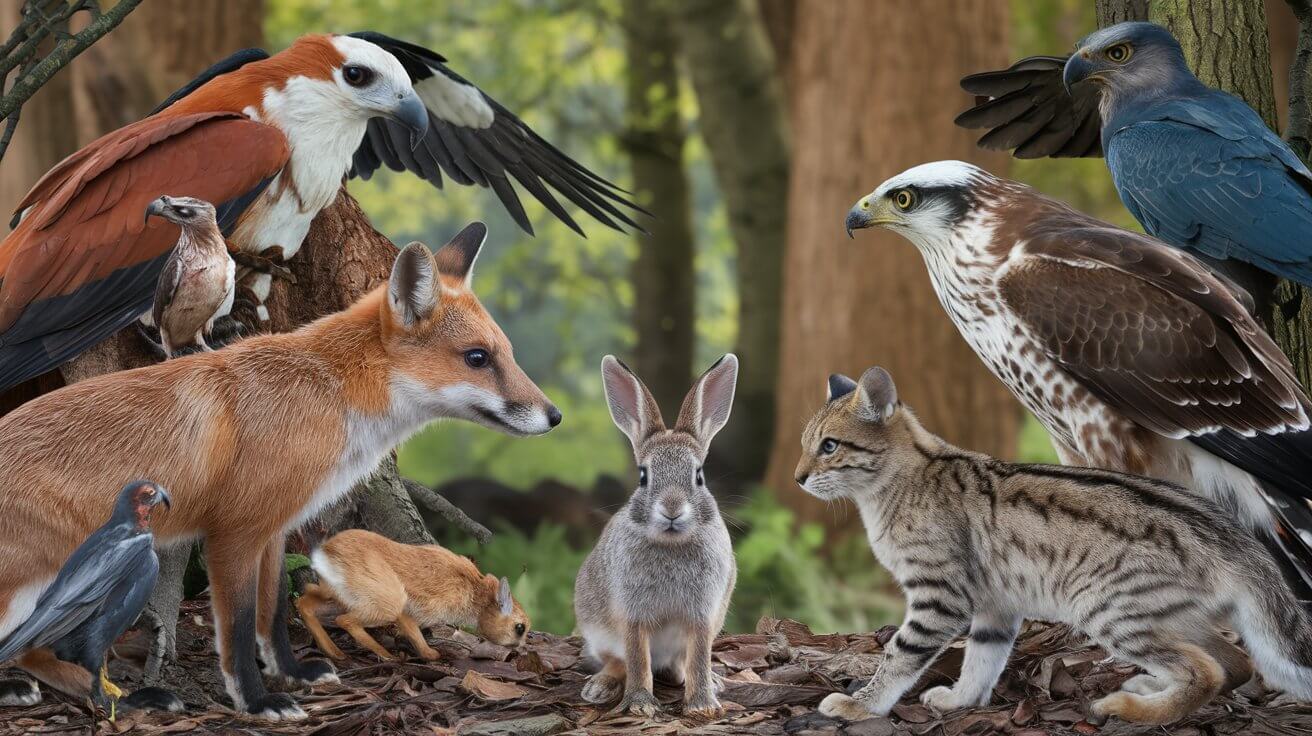
Leave a Reply